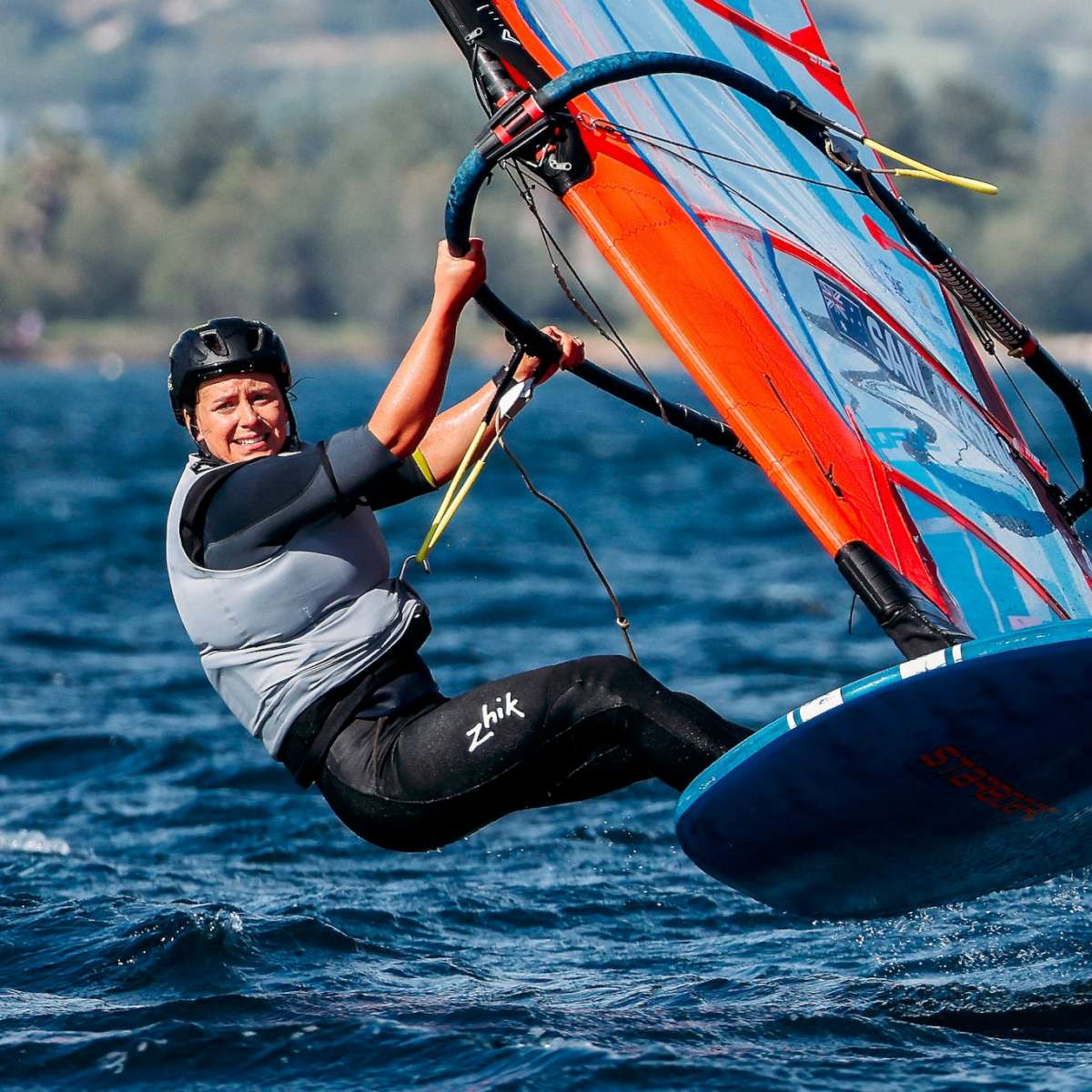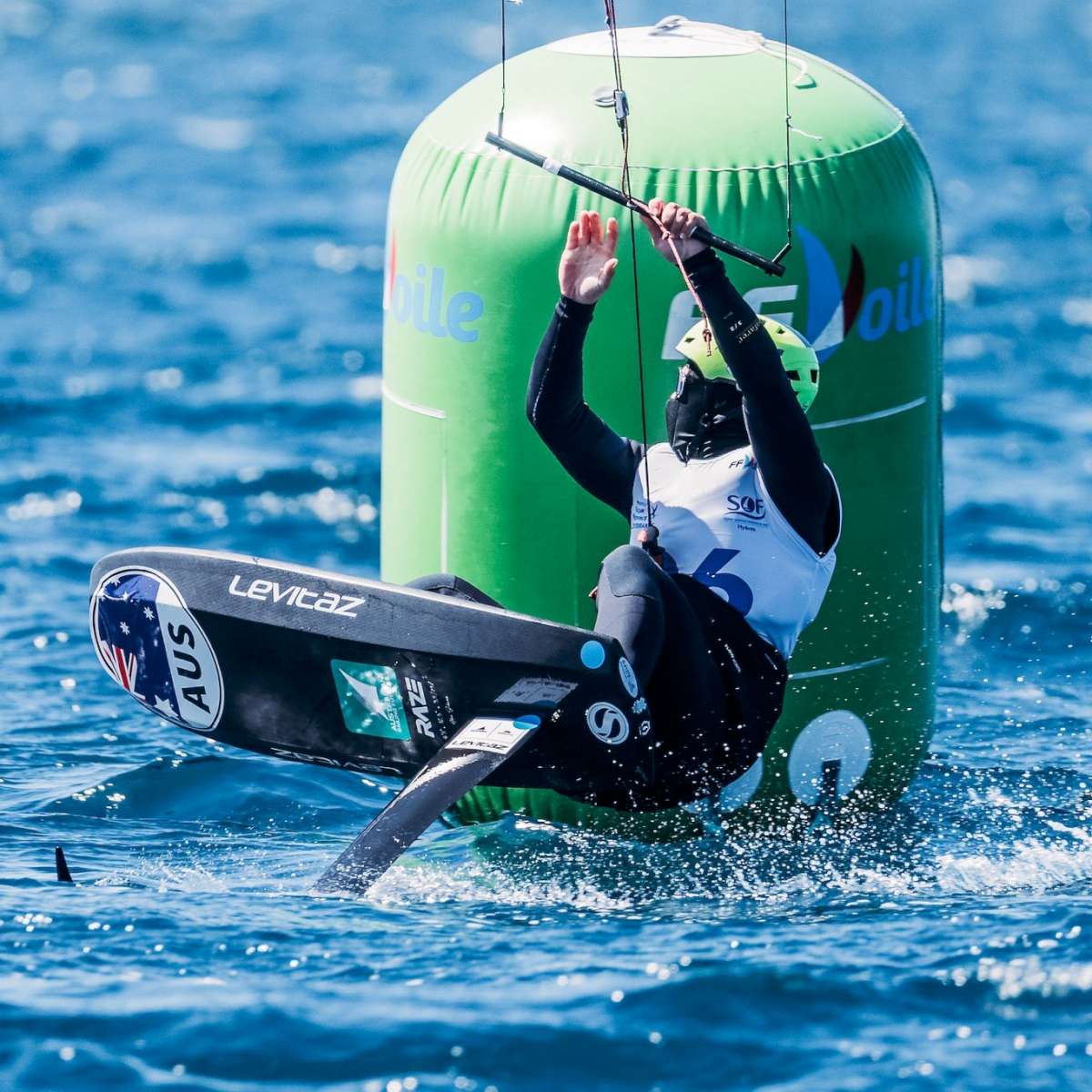By Margherita Pelaschier / Global Solo Challenge
As the storm Ciaran hit the coast of Brittany last night with winds reaching 55-70 knots and red alerts in various French ports, the fleet of seven vessels from the Global Solo Challenge that left A Coruña on the morning of Sunday the 29th is heading south.
The conditions during the first days off the coast of Spain have been very tough. Riccardo Tosetto reported that near Cape Finisterre winds averaging 35 knots gusting to nearly 60 knots, with a rough sea and very difficult waves. All the skippers faced a real test of fire adapting to life at sea, not yet managing to find the right rhythm in navigation. Many have spoken of being exhausted and unable to rest due to the complicated weather conditions encountered, and for some, technical problems have also arisen.
Cole Brauer, the brave American skipper, the first to take to the sea among the seven competitors, chose the optimal route dictated by weather routing. When a cold front approaches, typically, the fastest route is to head west to intercept a cold front and take advantage of more favorable winds behind the front to head south. However, in attempting to reach the front, the sea became increasingly difficult, making fast navigation tough with waves causing the boat to slam violently, which can quickly compromise the safety of the skipper and vessel. Tacking again, Cole headed south, hoping to encounter milder wind conditions and a calmer and more manageable sea and sailing faster than her direct competitors by being the windward boat and able to crack off the sails for speed.
“Skippers must always look for the right balance between the optimal route estimated by navigation programs or the forecast to find favorable winds, with the state of the sea which, sometimes, prevents sailing at the desired or theoretically predicted speed. The risk is damaging the boat without gaining a real advantage. In this case, fortunately, Cole reports gained precious miles relative to the direct competitors becoming the windward boat with no damage and in fact in this case it was actually the boats that were further east in the fleet that have encountered problems, they may have actually encountered a worse sea sate by not sailing off the continental shelf” commented Marco Nannini, the creator and organizer of the GSC.
American skipper Ronnie Simpson reported in his first blog post-departure that he faced some difficulties but was also happy about his rapid descent southward, hoping to soon encounter carrying winds and milder temperatures. “I have encountered many initial problems to deal with onboard Shipyard Brewing, but I am also looking for solutions, planning my next moves. I would like to send a greeting to all the other skippers. So far, this is a magnificent adventure, but honestly, it has been quite tough. Now we cross the geographic and figurative boundary that takes us from the European winter heading towards warmer and milder latitudes which I hope will be some of the most enjoyable miles of the trip awaiting us. I look forward to the wind turning aft and being able to hoist the spinnakers, and I hope to solve the problems I’ve had on board. A toast from Shipyard Brewing, somewhere west of Gibraltar!”
The first to communicate a technical problem, on Tuesday morning, was the Italian skipper Alessandro Tosetti aboard Aspra. Having started in a good position, in the first days, he sailed further east but not too far from Ronnie Simpson’s Open 50. During the second day of navigation, he began to have problems with the data network of the autopilot and, unable to resolve the issue at sea, he headed towards Matosinhos near Porto in Portugal.
Tosetti had hoped to anchor sheltered by the outer breakwater, but the port authorities asked him to move to the outer dock of the port. After evaluating the situation, Alessandro attempted to power the network directly from the pilot’s control unit, which, however, only works sporadically for periods of 10/30 minutes. He is waiting to get in touch with a technician to understand and definitively solve the problem.
[…]

























